Introduction

Corrosion poses a significant challenge to industries worldwide, causing billions of dollars in damages annually. However, the constant evolution of anti-corrosion technology offers hope. In this blog, we will delve into the latest innovations in anti-corrosion technology, shedding light on the solutions that promise to revolutionize the battle against corrosion.
The corrosion conundrum is not limited by borders or industries. Its pervasive impact extends across sectors, from the towering skyscrapers in urban centers to the vital pipelines buried beneath vast expanses of land. The global cost of corrosion runs into trillions of dollars annually, a staggering burden that no sector can afford to ignore.
Understanding the Scope of Corrosion

Before we explore the latest innovations, it’s crucial to grasp the extent of the corrosion problem. Corrosion impacts various sectors, including infrastructure, automotive, aerospace, and marine. It eats away at metals, causing structural weakening and economic losses. Hence, the development of effective anti-corrosion solutions is imperative.
According to estimates, corrosion-related costs exceed $2.5 trillion annually, accounting for roughly 3-4% of the global GDP. This substantial financial drain results from the need for repairs, maintenance, and replacements of corroded infrastructure and equipment. Bridges, highways, pipelines, and water treatment facilities are all vulnerable to corrosion. When left unchecked, corrosion can lead to structural failures, jeopardizing public safety and requiring substantial investments in repair and rehabilitation.
Corrosion can disrupt manufacturing processes by damaging machinery and equipment. This results in costly downtime, maintenance, and replacement expenses. Manufacturers are continually seeking innovative anti-corrosion solutions to ensure the smooth operation of their facilities.
Anti-Corrosion Technology Innovations
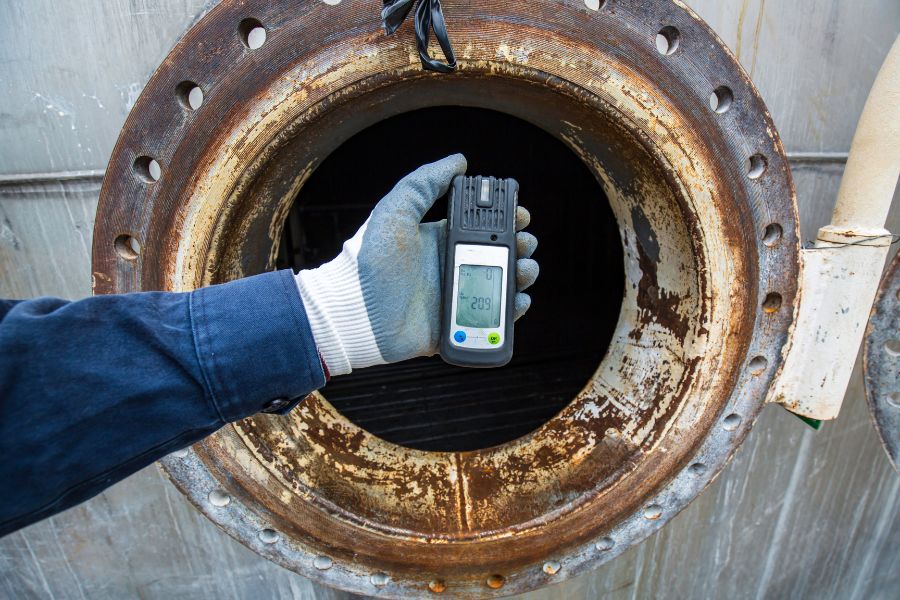
Coatings play a pivotal role in Anti-Corrosion Technology. Recent advancements have led to the development of high-performance coatings that offer unprecedented protection. Nanocoatings, for instance, employ nanotechnology to create ultra-thin protective layers that are incredibly resilient. These coatings are not only durable but also environmentally friendly, making them a promising choice for the future. Recent innovations in coatings technology have not only improved their protective capabilities but have also made them more environmentally friendly and efficient.
Nanocoatings: One of the most significant breakthroughs in anti-corrosion technology coatings is the development of nanocoatings. These coatings leverage the power of nanotechnology to create ultra-thin protective layers, typically just a few nanometers thick. Despite their minuscule size, nanocoatings are exceptionally resilient and offer superior corrosion resistance.
Nanocoatings are versatile and can be applied to a wide range of surfaces, from steel structures to electronic components. They provide an effective barrier against moisture, oxygen, and chemical substances that contribute to corrosion. Their ultra-thin nature ensures that they don’t add significant weight or alter the appearance of the coated material, making them ideal for applications where aesthetics or weight considerations are important.
Moreover, nanocoatings are environmentally friendly due to their reduced use of materials compared to traditional coatings. This not only reduces waste but also makes them cost-effective in the long run.
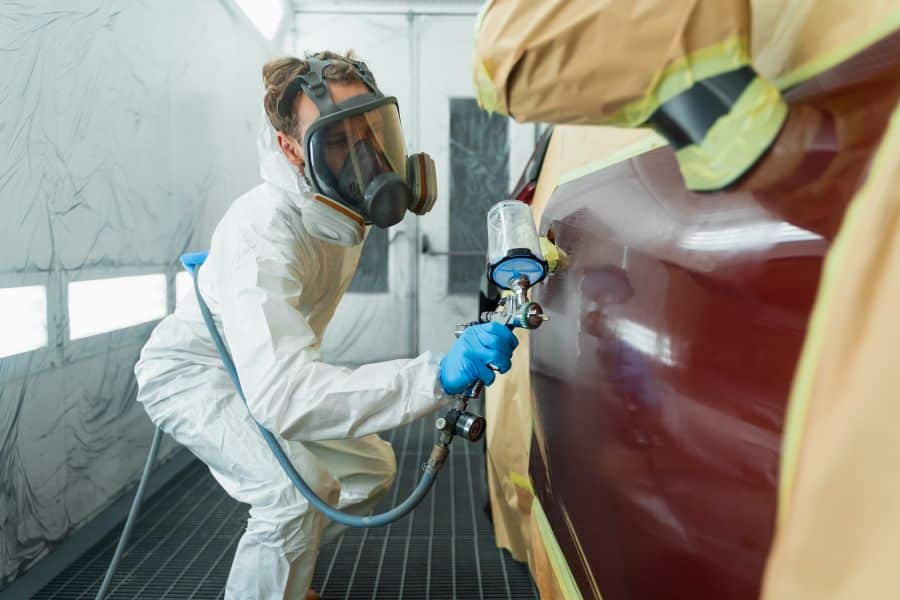
Self-Healing Coatings: Another noteworthy development is the advent of self-healing coatings. These coatings contain microcapsules filled with a corrosion-inhibiting agent. When the coating is damaged, such as by a scratch or a small crack, the microcapsules rupture, releasing the inhibitor to repair the damaged area.
Self-healing coatings are particularly valuable in situations where frequent maintenance or inspection is impractical, such as offshore oil rigs or pipelines buried underground. They help maintain the integrity of the coating, preventing corrosion from spreading and ensuring long-lasting protection.
Environmentally Friendly Coatings: With growing environmental concerns, there is a heightened focus on developing coatings that are eco-friendly. Water-based coatings, for instance, have gained popularity as they contain fewer volatile organic compounds (VOCs) compared to solvent-based coatings. This not only reduces the environmental impact but also improves the safety of the application process.
Furthermore, researchers are exploring bio-based coatings made from renewable materials like soybean oil, cornstarch, or citrus oils. These coatings offer corrosion protection while minimizing the use of petroleum-based resources and reducing the carbon footprint.
Functional Coatings: Beyond corrosion protection, coatings are becoming increasingly multifunctional. Some coatings incorporate properties such as anti-fouling (preventing the attachment of marine organisms), anti-icing (reducing ice accumulation), and even antimicrobial properties (in healthcare and food industries). These functional coatings enhance the performance and versatility of coated surfaces.
Smart Coatings: In the era of the Internet of Things (IoT), smart coatings are emerging as a significant innovation. These coatings can change colour or display patterns in response to environmental conditions, providing a visual indicator of potential corrosion or damage. Additionally, they can be integrated with sensors to transmit real-time data about the condition of the coated surface, enabling predictive maintenance.
Advanced Materials
Researchers are constantly exploring new materials to combat corrosion. Among these, graphene stands out as a game-changer. Its exceptional strength and electrical conductivity make it an ideal candidate for anti-corrosion technology applications. Graphene-based coatings and composites show immense potential in preventing corrosion in various industries.
Inhibitors and Smart Corrosion Sensors
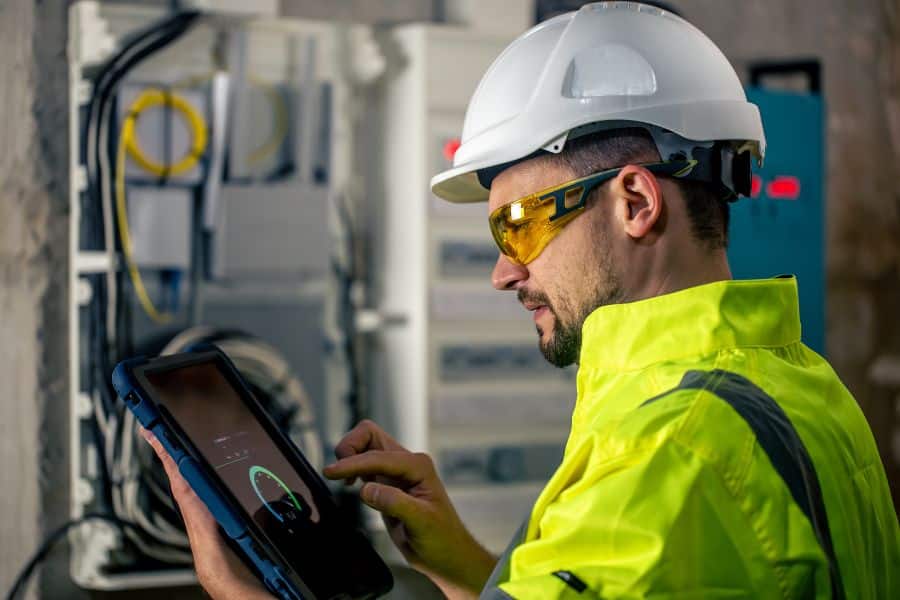
In the age of the Internet of Things (IoT), smart corrosion sensors have emerged as a powerful tool. These sensors continuously monitor corrosion rates, allowing for timely maintenance and prevention. Coupled with the use of corrosion inhibitors, which slow down the corrosion process, these technologies are proving to be highly effective in extending the lifespan of critical assets.
Cathodic Protection Innovations
Cathodic protection remains a reliable method to prevent corrosion in metal structures submerged in water or buried underground. Recent innovations in this field include the use of advanced anode materials and improved monitoring systems. These innovations ensure more efficient and long-lasting protection against corrosion.
Biological Methods
Nature has provided inspiration for anti-corrosion technology. Researchers are exploring the use of biologically derived compounds and processes to inhibit corrosion. Biofilm-forming bacteria, for example, can create protective layers on metal surfaces, reducing the risk of corrosion. This eco-friendly approach shows great promise.
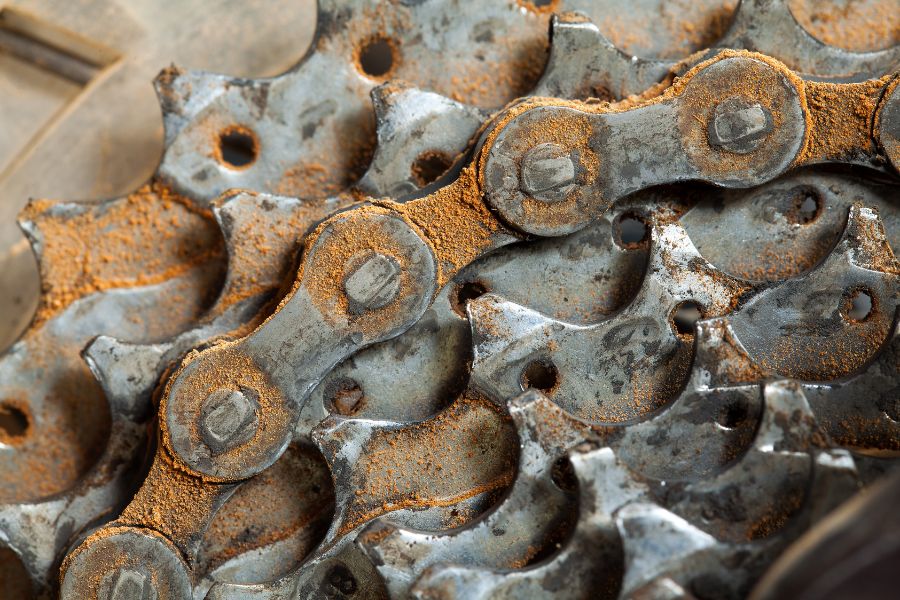
Corrosion-Resistant Alloys
In some applications, using corrosion-resistant alloys is the most effective solution in anti-corrosion technology. The development of new alloy compositions with enhanced resistance to corrosion is ongoing. These alloys are tailored to withstand specific environmental conditions, offering a robust defense against corrosion. These alloys, engineered to withstand the corrosive forces of various environments, have played a pivotal role in safeguarding critical infrastructure and equipment. In this section, we’ll delve deeper into the world of corrosion-resistant alloys, exploring their composition, applications, and the latest innovations in this field.
Corrosion-resistant alloys are carefully engineered materials designed to resist the deteriorative effects of chemical reactions with their surroundings. They are typically composed of a base metal alloyed with specific elements to enhance their resistance to corrosion. Common alloying elements include chromium, nickel, molybdenum, and copper. These elements form a protective layer on the surface of the alloy, creating a barrier that shields it from corrosive substances.
Their versatility and ability to withstand harsh environments make them indispensable in Anti-corrosion technology. With ongoing research and innovation, corrosion-resistant alloys are becoming even more effective, ensuring the long-term integrity of critical infrastructure and equipment
The Role of Education

As these innovative technologies continue to evolve, it’s essential for professionals in the anti-corrosion technology industry to stay updated. The CORCON Institute of Corrosion offers a range of courses designed to equip individuals with the knowledge and skills needed to tackle corrosion effectively. Education plays a pivotal role in equipping professionals with the knowledge and skills needed to effectively combat corrosion. Here’s why education is indispensable in the fight against corrosion:
Understanding the Fundamentals: Education provides a strong foundation in the fundamentals of corrosion science and engineering. Professionals learn about the chemical and electrochemical processes that underlie corrosion, enabling them to identify potential vulnerabilities and design appropriate preventive measures.
Keeping Up with Evolving Technology: The field of corrosion prevention is dynamic, with constant advancements in materials, coatings, monitoring & other anti-corrosion technology. Through education, professionals stay current with the latest innovations, ensuring that they can adopt and implement the most effective anti-corrosion strategies.
Customized Solutions: Corrosion challenges can vary widely across industries and applications. Education empowers professionals to tailor corrosion prevention strategies to specific contexts. Whether it’s protecting offshore oil platforms, historic buildings, or industrial pipelines, an educational background enables professionals to develop targeted solutions.

Safety and Environmental Concerns: Corrosion not only affects the lifespan and integrity of structures but also poses safety risks and environmental hazards. Education emphasizes safety protocols and environmentally friendly approaches to corrosion prevention, ensuring that professionals prioritize the well-being of both people and the planet.
Risk Assessment: Effective corrosion management involves assessing and mitigating risks. Education equips professionals with the tools to conduct comprehensive risk assessments, considering factors such as material selection, environmental conditions, and maintenance schedules. This proactive approach helps prevent costly corrosion-related failures.
Interdisciplinary Knowledge: Corrosion issues often require a multidisciplinary approach. Professionals with a solid educational background can collaborate effectively with engineers, chemists, materials scientists, and environmental experts, facilitating holistic corrosion prevention solutions.
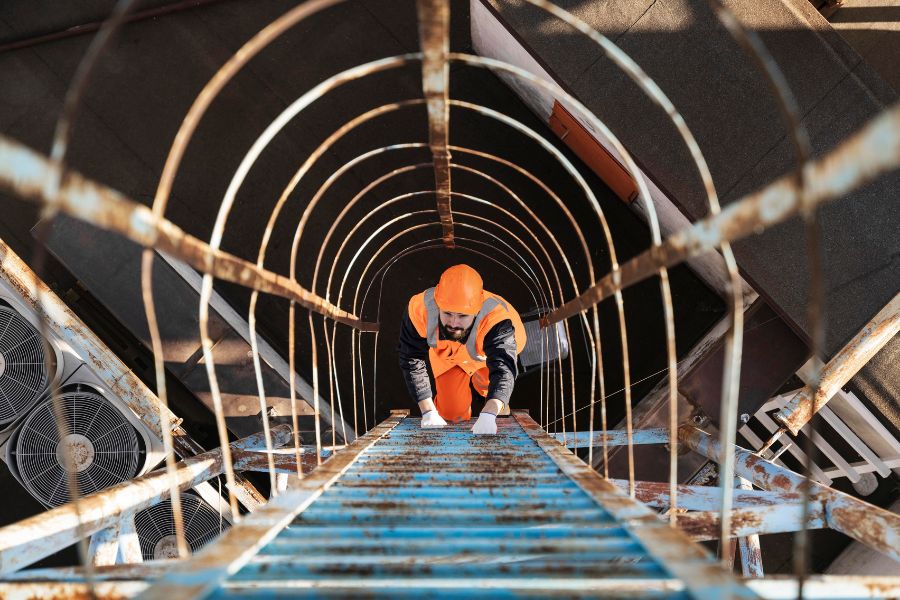
Regulatory Compliance: Many industries are subject to regulations and standards related to corrosion prevention. An education in corrosion management ensures that professionals are well-versed in compliance requirements, helping organizations avoid legal and financial consequences.
Problem-Solving Skills: Education fosters critical thinking and problem-solving skills, enabling professionals to tackle complex corrosion challenges with confidence. They can analyze corrosion-related issues, develop innovative solutions, and troubleshoot problems as they arise.
Career Advancement: Professionals with specialized knowledge in corrosion prevention are highly sought after in industries where asset integrity is critical. Education can open doors to career advancement opportunities, including leadership roles in corrosion management and consulting.
From corrosion prevention strategies to the latest advancements in anti-corrosion technology, our courses provide a comprehensive education that can make a real difference in your career.
Conclusion
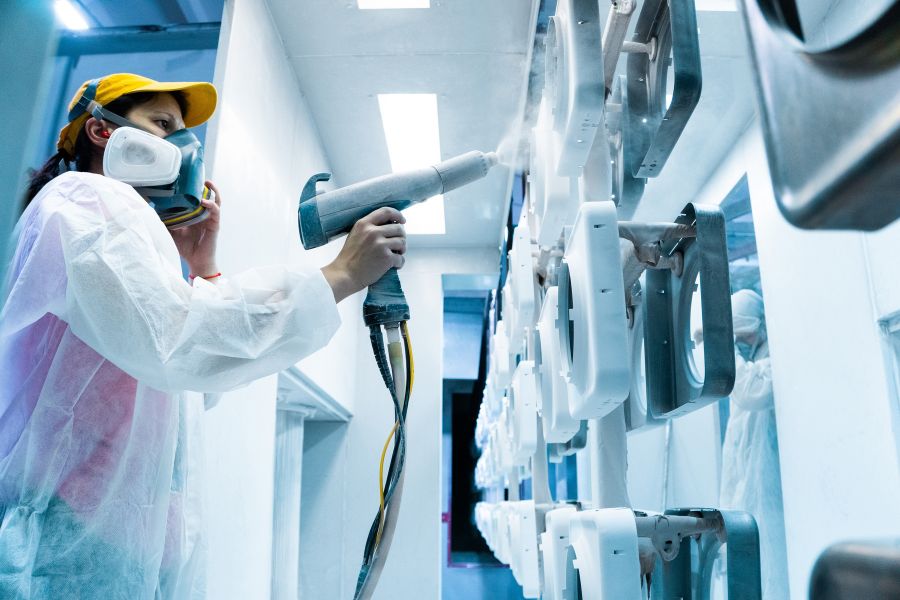
In the battle against corrosion, innovation is the key to success. The latest advancements in anti-corrosion technology, including nanocoatings, advanced materials, smart sensors, and biological approaches, offer hope for a corrosion-free future. To stay at the forefront of this field, consider enrolling in courses through the CORCON Institute of Corrosion. With our expertise and your commitment to learning, we can work together to protect valuable assets and ensure a corrosion-resistant world.
Image Reference: Freepik
Disclaimer: All trademarks, logos, and brand names are the property of their respective owners. All company, product, and service names used in this website are for identification purposes only. Use of these names, trademarks, and brands does not imply endorsement.

